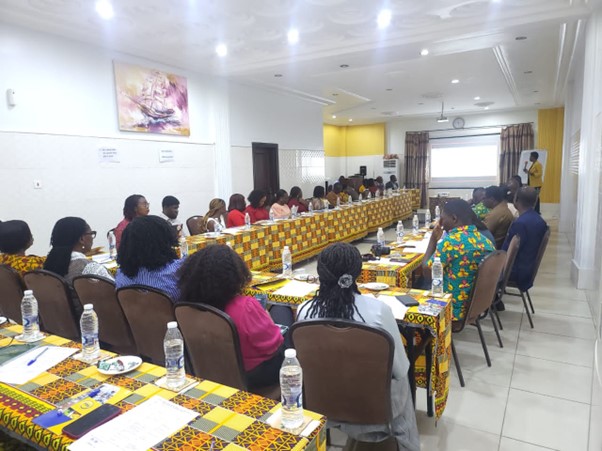The Food and Drugs Authority (FDA), Work Package 4 of the SAVING (Sustainable Access and Delivery of New Vaccines in Ghana) Consortium, has held a stakeholder meeting to present findings on Implementation Research (IR) conducted to identify factors contributing to low uptake of the Med Safety App.
The Med Safety App is a mobile app that can be downloaded free of charge from Google Play and the App Store for Android and iOS devices respectively. The app is used to report adverse reactions (side-effects) of medicines, vaccines and other medicinal products to the FDA.
Objectives of the stakeholders’ meeting were two-fold: First, to share results from Phase 1 implementation research on the Med Safety App; and second, to work with stakeholders on identifying key interventions to be incorporated into Phase 2 implementation research to improve the Med Safety App’s usage.
To make it easier for patients or consumers and healthcare professionals to report adverse reactions to drugs, vaccinations and other medicinal products, the FDA launched the Med Safety Mobile App in 2019. The app, among other things, provides users with safety information and allows them to create their own watch-list to receive personalised product-specific news.
In a speech read on behalf of Chief Executive Officer FDA, Dr. Delese Darko, by Mr. Seth Seaneke – Deputy Chief Executive Officer (DCEO) of Health Products and Technologies Division-FDA – underscored the occasion’s significance and reiterated FDA’s commitment to ensuring the safety and efficacy of medicines on the Ghanaian market.
The Chief Executive officer expressed gratitude for the efforts of the SAVING Consortium in building the capacities of not only the FDA staff but multiple stakeholders in identifying and addressing implementation challenges, and the invaluable contributions of all stakeholders present toward utilisation of the Med Safety App. She stated: “Today’s meeting is not just about sharing results, but also to chart innovative ways forward which enhance the Med Safety App’s utility and potentially transform medication safety in Ghana and globally”.
Presenting Phase 1 findings of the study, which was conducted using a mixed approach, Mrs. Adela Ashie, Safety Monitoring Department-FDA stated some of the key obstructions to using the App include inability to operate it; log-in and Internet challenges; and the App not providing reminders or notifications when news items are posted.
Participants engaged in group discussions to deliberate on strategies for addressing obstructions identified from the Phase 1 study.
Professor David Ofori-Adjei – a renowned Ghanaian physician, medical researcher, academic and medical journal editor who chaired the meeting, in his closing remarks emphasised the importance of stakeholder engagements and assured stakeholders that their recommended strategies will go a long way in improving use of the app.
The engagement had representations from healthcare professionals, patient groups, public health programmes, other regulatory authorities such as the South African Health Products Regulatory Authority and Medicines and Healthcare products Regulatory Agency, UK; as well as representatives from the United Nations Development Programme, World Health Organisation’s Access and Delivery Programme and AUDA – NEPAD’s African Union Smart Safety Surveillance programme.
The SAVING Consortium project builds on the Access and Delivery Partnership value chain’s framework and stresses the importance of an efficient regulatory control system using Implementation Research (IR) to build technical and IR capacities in its partner institutions, namely the University of Health and Allied Sciences, Ministry of Health and FDA.










